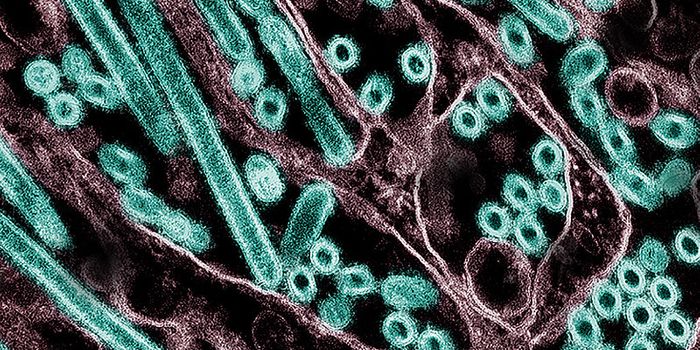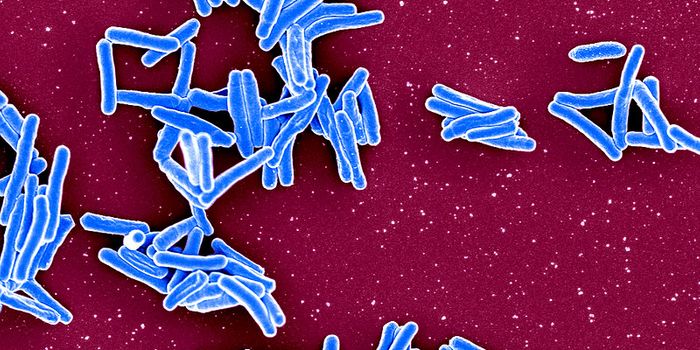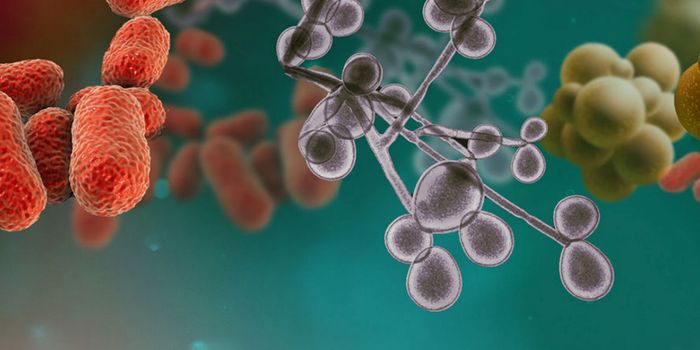Antibiotic Exposure Reduces Survival Rates in Triple-Negative Breast Cancer
When triple-negative breast cancer patients had taken several prescriptions worth of antimicrobials, they were more likely to die or have a recurrence of cancer compared to patients who had never taken antibiotics, according to new research reported in Nature Communications. The severity of cancer did not cause the differences in the rates of survival among these patients, who experienced a greater risk of poor outcomes as the number of type of antibiotics they took increased.
A patient's risk of death increased between 5 percent and 18 percent for each additional antibiotic they took compared to patients who did not take antibiotics, noted lead study author Julia Ransohoff, MD, a hematology and medical oncology fellow at the Stanford School of Medicine.
"It is important to interpret these findings with caution, however. We can't let life-threatening infections go untreated," added Ransohoff. "But this study suggests that we consider how best to treat them without raising the risk of cancer recurrence."
The reduction in survival rates was also small overall. In this study, the investigators assessed 772 patients who were diagnosed with triple negative breast cancer between January 2000 and May 2014. Patients who were prescribed antimicrobials (99 percent of indivudals analyzed in this study took antibiotics, while a handful had taken antifungals) were found to have lower levels of immune cells called lymphocytes in circulation, especially when they had been prescribed multiple types of antibiotics. Previous work has shown that there is a link between lymphocyte levels and treatment response in breast cancer patients, a link that may involve the gut microbiome.
Over the course of the study, 20 percent of patients who were not prescribed antimicrobials died, while 23 percent of patients who had never received antimicrobials died. The risk imposed by antimicrobial use is, therefore, relatively small. However, for every additional antimicrobial drug that was taken, there was a significant reduction in the likelihood of survival in triple negative breast cancer patients.
Research has shown that antibiotics have a major impact on the microbes in the gut, which themselves have a significant influence on our health. The gut microbiome is known to affect the immune system, and how patients respond to drugs including chemotherapy. This research has indicated that antibiotics, and the gut microbiome, could also influence mortality in patients with triple negative breast cancer.
"We found a surprisingly strong and sustained increased risk of death in patients who had received multiple antimicrobials any time during the three years after their initial diagnosis," noted Ransohoff.
There were some drawbacks to the study. Many patients did not have access to the current triple-negative breast cancer treatments like immune checkpoint inhibitors because they were diagnosed so long ago.
Triple-negative breast cancer is also a unique breast cancer type that is harder to treat and more rare than other types. However, it is also more susceptible to immune attacks. Thus, the link between antibiotic intake and poor survival rates may not be found in other breast cancer types.
The research does agree with other studies that have found that antibiotics can influence survival rates in cancer patients. It may be the first to link antimicrobials to circulating lymphocytes levels and overall cancer survival rates.
"Patients should not panic if they were treated with antibiotics after a breast cancer diagnosis," said co-senior study author Allison Kurian, MD, a professor of medicine and of epidemiology and population health at Stanford. "In any individual case, the risk increase is not large. But overall, these findings suggest a link between antibiotic use, the immune system and breast cancer survival, which warrants further study."
Sources: Stanford University Medical Center, Nature Communications









